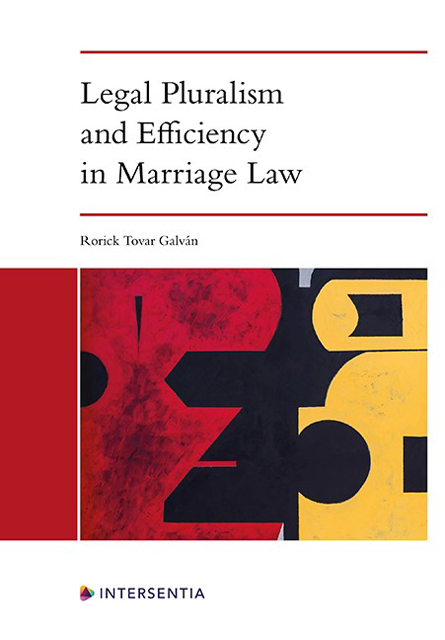Book contents
- Frontmatter
- Dedication
- Miscellaneous Frontmatter
- Foreword
- Preface
- Acknowledgments
- Contents
- List of Cases
- Introduction: Uncertainty and Inconsistency Surrounding the Determination of the Applicable Law in the EU Instruments on Matrimonial Issues
- Part I Economics As A Point Of Departure To Explain The Substantive Rules On Matrimonial Issues
- PART II Economics as a Point of Departure to Build a System of Conflict of Laws For Matrimonial Issues
- Conclusion: Certainty, Precision, Coherence, and Simplicity in the Determination of the Applicable Law
- Bibliography
- Index
- About the Author
Chapter 7 - Advantages of Allowing Free Determination of the Applicable Law to Matrimonial Issues
Published online by Cambridge University Press: 17 December 2022
- Frontmatter
- Dedication
- Miscellaneous Frontmatter
- Foreword
- Preface
- Acknowledgments
- Contents
- List of Cases
- Introduction: Uncertainty and Inconsistency Surrounding the Determination of the Applicable Law in the EU Instruments on Matrimonial Issues
- Part I Economics As A Point Of Departure To Explain The Substantive Rules On Matrimonial Issues
- PART II Economics as a Point of Departure to Build a System of Conflict of Laws For Matrimonial Issues
- Conclusion: Certainty, Precision, Coherence, and Simplicity in the Determination of the Applicable Law
- Bibliography
- Index
- About the Author
Summary
Previously, the plausibility of the emergence of a market of law, as well as the conditions for its appropriate functioning, were discussed. The following lines now focus on showing that the freedom of choice is not only a means to promote regulatory competition in the area of marriage law, but also a tool to draw the maximum benefit for spouses from the existence of different legal systems in the international arena. Legal pluralism is not depicted as a problem, but rather as an opportunity to improve the situation of those involved in a marital relationship.
This chapter is divided into six sections. Each of them deals with one of the main advantages from the elimination of barriers to the freedom of choice: legal certainty; greater capacity to influence one’s own well-being; safeguarding the rights of minorities; experimentation and innovation in lawmaking; tendency towards convergence; and incentives for the formalization of the relationship.
LEGAL CERTAINTY
It is widely accepted that the most straightforward benefit from the freedom of choice is the opportunity to organize the private sphere in a structured and orderly fashion. Party autonomy allows reliable predictions about the outcomes of potential lawsuits, and the consequences of foreseeable or unforeseeable events like a marital crisis or the death of the partner. It lets spouses calibrate the amount of effort invested in the relationship, and make timely decisions that – if they do not improve their current situation – at least prevent further loses in the future. An unforeseeable change in the governing law in turn renders any effort to plan one’s life prudently moot, and creates a breeding ground for opportunistic behavior by either of the spouses. Legal certainty is definitely one of the biggest advantages of allowing individuals to determine the law governing their marriage themselves.
CHOICE OF AMBIGUOUS RULES BY SPOUSES
But, should choice of law agreements appointing a legal system with ambiguous rules be enforced? If the objective of the choice of law is guaranteeing legal certainty, one could then arrive at the conclusion that arrangements selecting unpredictable substantive rules should not be protected by the law.
- Type
- Chapter
- Information
- Legal Pluralism and Efficiency in Marriage Law , pp. 179 - 208Publisher: IntersentiaPrint publication year: 2022



